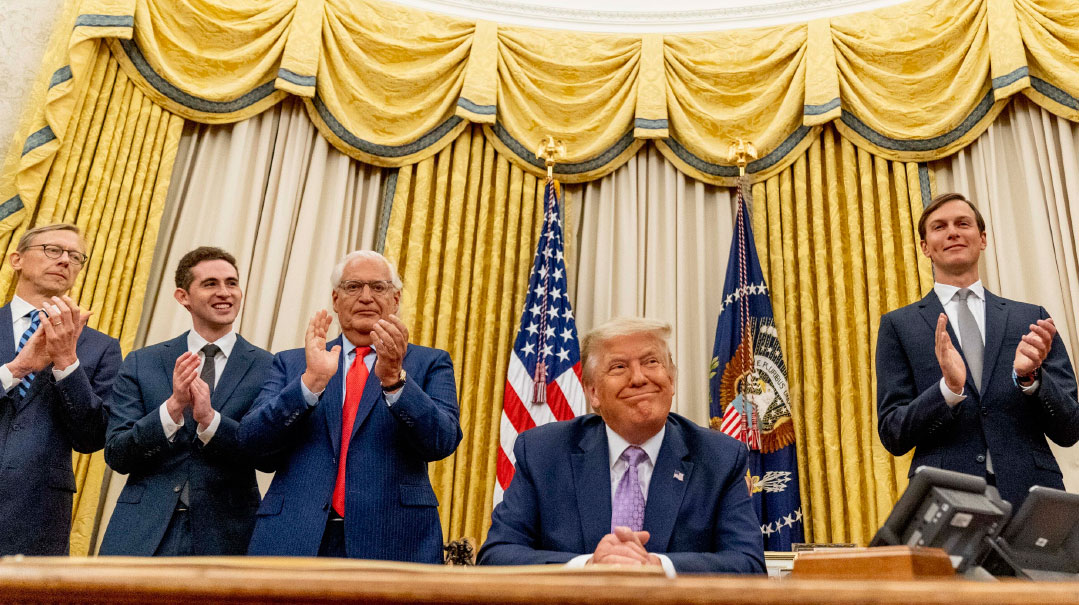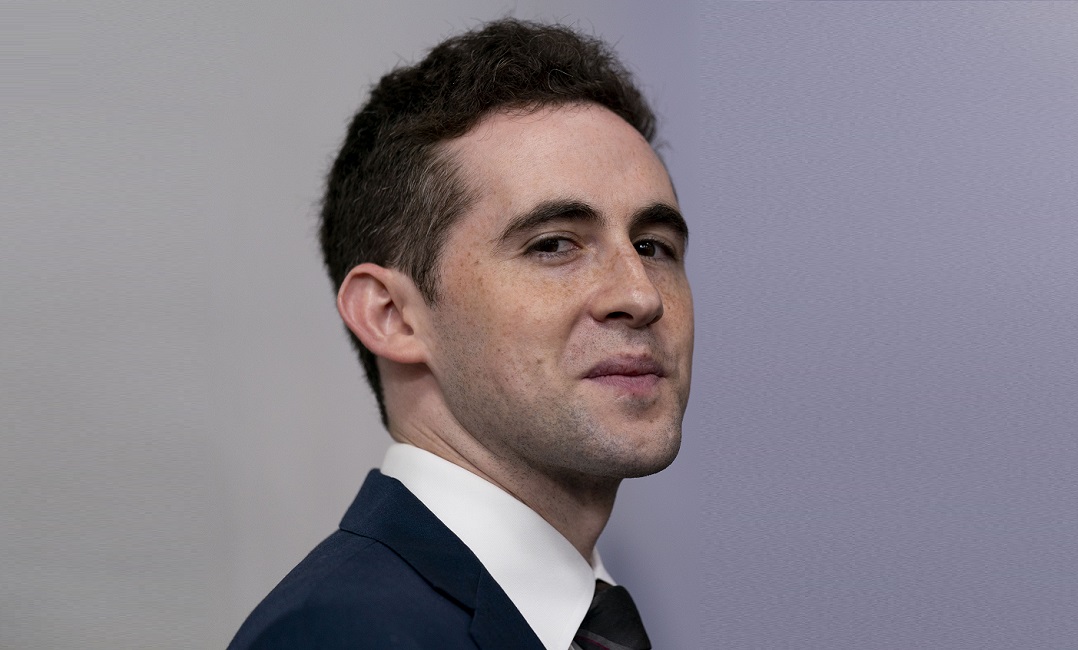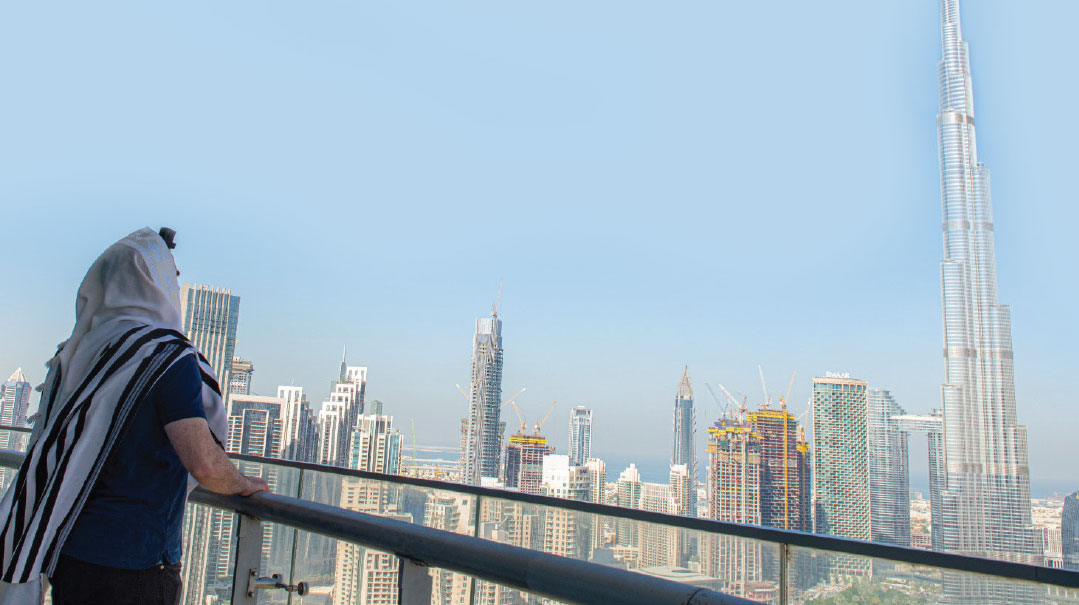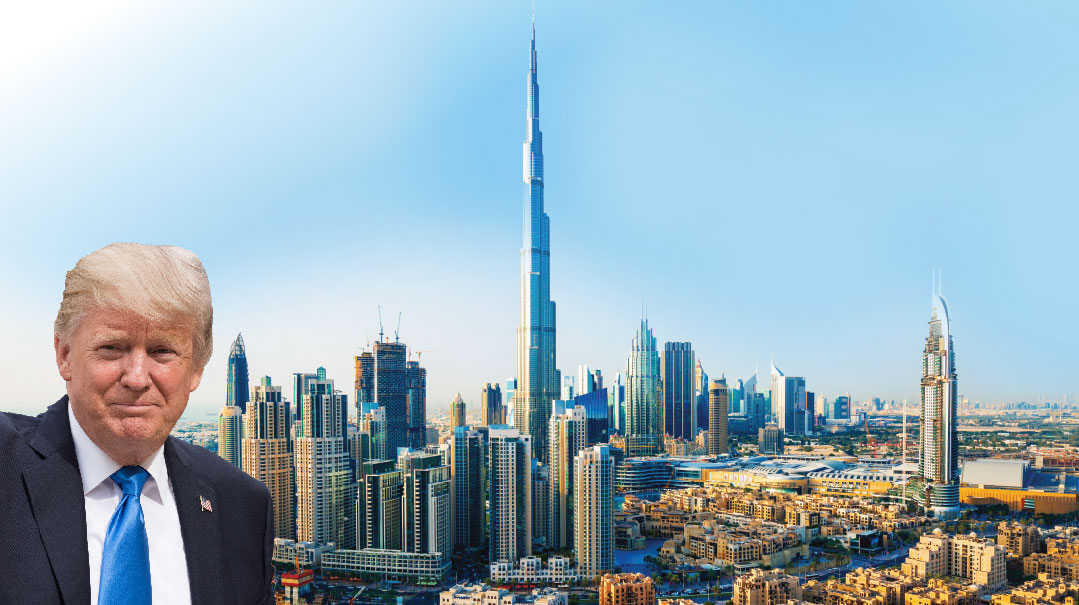Backstory Breakthrough

The diplomatic coup announced by Trumpian tweet last week to a stunned world began only a few months ago on the olive-green hills of Judea and Samaria

A billionaire Gulf crown prince, a powerful presidential son-in-law, and a suave spymaster — the full story of the historic opening between Israel and the United Arab Emirates will doubtless be the stuff of blurb writers’ dreams.
But even before the account of those back-channel dealings between White House advisor Avi Berkowitz, the UAE’s Crown Prince Mohammed bin Zayed Al Nahyan, and Mossad chief Yossi Cohen is published, it’s clear that the diplomatic coup announced by Trumpian tweet last week to a stunned world began only a few months ago on the olive-green hills of Judea and Samaria.
As international pressure — and a swarm of media crews — descended on Israel ahead of the July 1 deadline for the proposed annexation of parts of the West Bank, I took a swing through the majestic vistas of Gush Etzion. It was just two weeks before D-Day, and the settlement movement’s leaders, who had been in the White House back in January for the unveiling of the Trump Peace Plan, were still in the dark about whether Bibi Netanyahu intended to go ahead with annexation at all.
But in a moment of prophecy he later struggled to remember, Efrat mayor and Yesha Council foreign envoy Oded Revivi said: “It could be that Bibi is preparing to back off from the whole annexation. There’s even a suggestion that the Trump deal is spin, and Bibi will leverage that threat to gain a diplomatic breakthrough with the Arab states as his legacy.”
That in fact proved to be the case. That timeline — confirmed in a post-announcement conversation with a senior US administration official, who said, “I didn’t see this coming anytime in the last few years, but all of a sudden a few months ago it started to get traction” — is the backstory of this turning point for the Middle East.
Settlement leaders will debate whether or not this was Netanyahu’s game all along. But whatever Bibi’s intention, the leverage created by the threat of annexation created the space for intense talks between Washington, Jerusalem, and Abu Dhabi to take place, in a series of low-key visits and phone calls since the end of June.
The political backdrop, both in Washington and Jerusalem, is just as important. Just 80 days short of presidential elections, even Trump’s supporters agreed that he’d grown stale. Only last week, under the threat of fourth Israeli elections amid soaring COVID infection rates, Netanyahu’s political star was waning and his legacy looked threadbare. A decade of high-tech-fueled economic boom had given way to massive unemployment, annexation had failed, and three successive polls had emptied his political hat of election season rabbits.
And then came the diplomatic earthquake. It’s surely no accident that foreign policy has returned a hint of magic to two struggling politicians — like a pair of aging conjurors who still have a trick or two up their sleeves. And while Joe Biden attempted to claim partial paternity for the breakthrough — saying that it was built on the efforts of “multiple administrations” — many observers will see the imprint of Trump’s policies all over the deal.
If Thursday’s dramatic announcements herald the birth of a new Middle East, it was a delivery midwifed by other players, including Jewish organizations who have built strong links with the Gulf states over the past few years, as these countries tested the waters of a rapprochement with their longtime enemy.
“Every year we host a side event in Davos at the World Economic Forum,” says Rabbi Pinchas Goldschmidt, president of the Conference of European Rabbis (CER). “For the last two years we’ve been inviting major figures from the Emirates. Last year one participant asked a general in the Emirates army, ‘Do you think one day you’ll have a relationship with Israel?’ ”
“Yes,” came the answer, “I hope it will happen soon.”
Diplomatic Carrot and Stick
Call it the newspaper column heard around the world.
If there is one moment that seems to have kickstarted the drive toward an Israel-UAE agreement, it’s the unprecedented mid-June Yedioth Ahronoth op-ed penned by UAE ambassador to the US Yousef Al Otaiba warning against annexation. Describing the “carrots” of Israeli-Arab détente as “greater security, direct links, expanded markets, and growing acceptance,” he went on to warn that a unilateral move “will certainly and immediately upend Israeli aspirations for improved ties with the Arab world and with the UAE.”
To make sure that the Gulf message got through, Abu Dhabi’s foreign ministry even followed it up with a symbolic tweet in Hebrew. “In the UAE and a large part of the Arab world, we want to believe that Israel is an opportunity, not an enemy,” it read. “We stand before too many shared dangers and see the giant potential of warmer ties. An Israeli decision to annex will be an unmistakable sign of whether it sees things in the same way.”
Al Otaiba’s public and private messaging was heard loud and clear in Jerusalem, especially as Washington was making clear that annexation wouldn’t be cost-free for Israel after all. At the end of June, American envoy Avi Berkowitz arrived in Israel and met with Netanyahu three times in three days to discuss the issue of annexation. Berkowitz reportedly presented a demand for Israeli concessions to the Palestinians, including the transfer of 5% to 10% of Area C in Judea and Samaria to Palestinian control — a position totally unacceptable to much of Netanyahu’s base.
But the UAE ambassador hadn’t just come armed with a stick; he was equipped with a large carrot of his own, in the form of a radical proposal. Turning to Donald Trump’s son-in-law and advisor Jared Kushner, he said the United Arab Emirates would agree to promote normalization with Israel in exchange for backing off annexation.
Kushner liked the idea and instructed Berkowitz and the rest of the American peace team to start working on it. Netanyahu’s point man on international issues, Mossad chief Yossi Cohen, conveyed Bibi’s interest in exploring how serious the UAE was in leading the first breakthrough in Arab-Israeli relations since the 1994 Jordanian peace deal.
In the weeks after Berkowitz’s visit, the initiative quickly gained momentum. Kushner spoke on the phone several times with Netanyahu and with Crown Prince Mohammed bin Zayed Al Nahyan, UAE’s de facto ruler. Kushner and Berkowitz also held dozens of meetings with Israeli ambassador Ron Dermer and Ambassador Al Otaiba to summarize the details. In parallel, for about a month, Mossad chief Yossi Cohen and US secretary of state Mike Pompeo — whose close relationship dates back to Pompeo’s stint as CIA director — worked on the details of the agreement.
As it became clear that a breakthrough was possible, Bibi continued to make the right noises about annexation for his base, but the July 1 deadline came and went — and the plan was quietly buried.
So did Netanyahu ever intend to implement annexation, or were the settlers merely a pawn in a greater chess game aimed at the Arab states?
That the question is even raised is testament to Netanyahu’s statesmanship. But according to the administration official, the deal doesn’t prevent annexation at a later date. “No one should think that the right of the Jewish People to Judea and Samaria, their biblical heartland, is compromised. But this is such an extraordinary opportunity for Israel to become more secure that the president views this [the UAE deal] as a priority.”
And although Gush Etzion Regional Council chair Shlomo Ne’eman sees the deal in negative terms, he says that it was only conceived to save face after the peace plan with the Palestinians went nowhere.
“While normalization with the Arab states is a good thing, we pay too high a price for this agreement at the expense of sovereignty,” he says. “But I believe the original plan for annexation was sincere, and both Bibi and Trump were embarrassed by their inability to implement the peace deal they’d announced, so this plan was born as an alternative.”
And for Efrat mayor Oded Revivi, whose offhand comment about the opening that annexation provided proved accurate, the dynamics are clear: “The settlers can’t see the light at the end of the tunnel, but I think the proposed deal is a win-win situation, and changes the paradigm that opening to the Arab world is only possible after peace with the Palestinians.
“It happened because Bibi’s sovereignty move was taken seriously. It created a new asset that wasn’t there before, which the other party understood and counter-offered, to make sure we didn’t move ahead.”
Meeting of Minds
“All politics is personal” is a well-known saying, but it could have been coined by Donald Trump, who has made relationships with fellow leaders the cornerstone of his diplomacy. But while personal chemistry has often failed to achieve anything for the president, last week in the Middle East the three-way meeting of minds between a cast of colorful actors delivered spectacularly.
It started with the princelings, both American and Arab. Back in 2016, the new Trump administration signaled that close ties with the Gulf states were a core interest by making Saudi Arabia the first stop on President Trump’s maiden foreign trip. But after a ceremony-laden photo-op with King Salman, deeper bonds were cemented by the next generation.
Close ties between Jared Kushner and Saudi crown prince and de facto ruler Mohammed bin Salman, known as “MBS” (as well as his UAE counterpart, known as “MBZ,” to the media’s delight), were widely covered in mainstream media outlets, often in negative terms. The Guardian reported that the representatives of the “House of Trump and the House of Saud stayed up late into the night planning to remake the map of the Middle East.”
The New York Times reported that they were on first-name terms, speaking often, the result of a two-year Saudi “influence campaign.” In the wake of the gruesome killing of Saudi opposition figure Jamal Khashoggi in the country’s Turkish embassy, reportedly by MBS operatives — to which Kushner’s response was the diplomatic equivalent of a yawn — that criticism intensified. The young American’s diplomatic inexperience, the paper quoted former US officials as saying, left him open to Saudi manipulation.
But Kushner — whose friendship with the thirty-something MBS seems to have revolved around a shared millennial outlook and membership in the billionaires’ club, in a circle that includes Israeli-born WeWork founder Adam Neuman — has the last laugh over his detractors. His sphynx-like, youthful appearance is deceptive, as indicated by his fluent performances in rare media appearances. And in light of the breakthrough facilitated by his relationships, the naivete claim doesn’t hold water anymore.
As a more open society, the UAE is not identical to Saudi Arabia, but its breakthrough might well be a trial balloon for the real prize — normalization between Israel and the heavyweight of the Sunni world. In an interview with CNBC, Kushner himself made that claim, calling normalization with Saudi Arabia an “inevitability.”
“They see Israel as almost the Silicon Valley of the Middle East, and they want to be connected to it as a trading partner, as a technology partner, as a security partner,” Kushner said of young Saudis.
Mossad head Yossi Cohen is the other leading actor in the drama that’s just played out. Suave, impeccably groomed, and the subject of regular media hagiography, Cohen is that rare thing: a spymaster who’s both lethally effective and looks the part.
His masterminding of the daring 2018 raid on Tehran’s nuclear archives, together with the continuing disappearance of Israel’s enemies from Iran to Malaysia (assumed to be his agency’s work) and his outreach to Gulf leaders, have thrust the Mossad boss superstar into the spotlight — a status at odds with that of many of his anonymous predecessors, who worked in the shadows.
With that reputation for boldness and creativity, and the backing of his political patron, Cohen has presided over a dramatic expansion of the Mossad. A recent State Comptroller’s report details how the agency has exceeded its annual budget by over 50 percent in recent years, at a time when the IDF budget is expected to contract. The prestige of Cohen’s Mossad is such that it is now at the cutting edge of the country’s foreign policy, relegating the Foreign Ministry to an underfunded backwater.
Emphasizing both Cohen’s outsize foreign-policy influence, and Bibi’s brittle relationship with his senior coalition partners, only after an agreement was reached did Netanyahu update Defense Minister Benny Gantz and Foreign Minister Gabi Ashkenazi on developments — two former chiefs of staff who were privy to Israel’s most sensitive information.
“Yossi Cohen’s success is his ability to connect to people of all types — he’s recruited the best agents the Mossad has ever had,” a colleague told Mishpacha as part of a profile last year.
With the opening to Arab leaders, Cohen has connected yet again.
Red Carpet in Dubai
“The first step in establishing relations with Israel has historically been through the world Jewish community,” says CER president Rabbi Pinchas Goldschmidt of his organization’s outreach to the Gulf states, which has included support for the country’s nascent Jewish community.
“We see in general that countries like the USSR that didn’t have official relations with Israel tested the water by initiating contacts through community organizations. It’s the same with the UAE. Even nondemocratic countries need the consent of their populations, who’ve been fed decades of anti-Semitic propaganda, so this is their way of changing course.”
With that model in mind, the CER played a part in the Gulf states’ deepening interest in the Jewish and Israeli worlds. “Five years ago we organized a meeting in Abu Dhabi between World Jewish Congress president Ron Lauder and top figures in the Emirates, where relations with Israel were discussed,” says Rabbi Goldschmidt. “One thing that came up was the crisis a few years before over Israel’s targeted killing of senior Hamas operative Mahmoud Mabhouh in a Dubai hotel room, and how to overcome the distancing of the Emirates from Israel.”
Recently came the hopeful comments of the Emirati general about opening to Israel, but those sentiments, says Rabbi Goldschmidt, are widely shared by the UAE elite. “I know a senior UAE diplomat whose dream it is to become the first ambassador to Israel. He deeply respects the Jewish People and wants to see this happen.”
But along the lines of the USSR, which used meetings with the world Jewish community as a hechsher to disguise the anti-Semitism they practiced on Russia’s Jews, are these meetings not just a way of building close relations with the Trump and his Jewish son-in-law?
“No, I think this is going to be a warm peace,” says Rabbi Goldschmidt. “I’ve met government ministers, members of the royal family, and people from different spheres of life, and I’m impressed by their quest for change. This is much more than about having a common enemy in Iran — the Emirates have a choice. To go forward and become an enlightened country where people want to live and prosper, or go back to the Middle Ages, like the Taliban.”
Rabbi Marvin Hier of the Simon Wiesenthal Center is a veteran of similar bridge-building to the Arab world. “We’ve brought delegations to different parts of the Gulf, including Dubai, Abu Dhabi, and Bahrain, and we knew from these contacts that they were headed in this direction,” he says. “I have no doubt that Bahrain will soon follow, and the Saudis after that.
“When Trump held a conference in Bahrain, we had a minyan in a shul there that has been closed since 1948, and I davened from the amud there. The Chabad shaliach to Bahrain is teaching Hebrew to the son of Mohamed Alabbar, a real-estate tycoon whose company controls Dubai’s Burj Khalifa, which is the world’s tallest building.”
Visits have gone the other way as well, with Bahrain sending a large delegation to the Simon Wiesenthal Center in Los Angeles last year. “The Bahraini band played Hatikvah at an event we sponsored for L.A.’s Jewish community.” As to the temperature of the warming ties, Rabbi Hier is also optimistic. “I think this will be a warm peace.”
The thrill of the historic breakthrough is still evident when the Trump administration figure says that “the next deal might be sooner than you think. With each deal, the next becomes more likely, and the UAE ought to be pleased, because it’s been received beautifully around the world.”
In the meantime, for both Bibi and Trump, the afterglow is providing a welcome political boost, as well as a replacement for the vanished annexation project. The brash princelings, tycoons, and spymasters in Washington, the Gulf, and Israel are doubtless planning the next diplomatic coup.
And the remote communities of the West Bank wait their turn again as the Middle East is remade.
(Originally featured in Mishpacha, Issue 824)
Oops! We could not locate your form.











